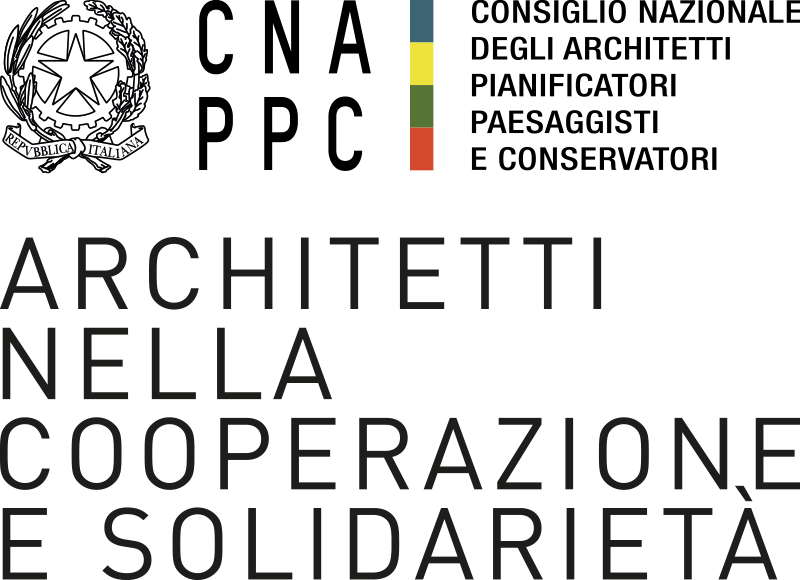THE TRAINING OFFER: THE CNAPPC
According to the most recent United Nations surveys, in 2018 there were about sixty million displaced people in the world.
Sixty million women and men who have had to leave their territories of residence because they were either severely disrupted by a natural disaster or ravaged by a conflict.
The United Nations predicts that this scenario is destined to worsen inexorably due to both the deterioration of the international political situation and the increasing impact of climate change on the habitat.
This will call for a steadily increasing number of highly qualified professionals, able, thanks to their skills, to offer effective responses. Amongst all these skills, the ones most urgently needed will be those of the architect.
The introductory course in cooperation activities in humanitarian architecture is promoted by the National Council of Architects as a preparatory training for the development of professional skills for emergency and development projects in the specific areas of expertise of architects, in particular architecture, planning, conservation of cultural heritage, the environment and sustainability, and more generally the issues of emergency management and resilience. This introductory course prepares students for subsequent specializations at a graduate level, as well as for activities promoted by cooperation sector operators, with the aim of integrating the basic knowledge acquired during undergraduate studies or during one’s own work experience with the theoretical notions necessary to operate in the context of international cooperation.
Training thus becomes the starting point for the cooperating architect, to implement his knowledge, which “classical” training leaves gaps in, such as how to build relations with beneficiaries, communicating effectively in other languages and cultures, using unfinished materials or running a work site. Training and knowledge exchange are also fundamental elements in the field, including for those who will become the recipients of projects and good practices.
OBJECTIVES
To make architects aware of the civil, technical and professional content in the humanitarian sector.
Offer basic tools to stimulate and encourage an approach to these issues.
RECIPIENTS
The introductory offer is aimed at Italian architects who intend to approach the field of emergency, disadvantaged and critical situations related to cooperation, solidarity and sustainability.
PROGRAM
The program of the course is divided into thematic areas, with seminars provided through the platform of the National Council of Architects P.P.C.
